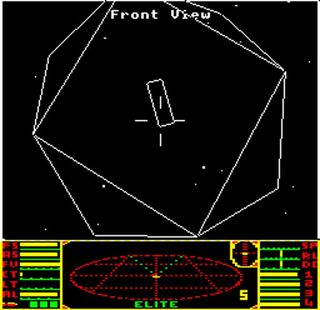'Games retail is unsustainable' says supermarket giant TESCO. But why is it going so wrong?
One GR Editor's view on the troubles our beloved hobby is facing
The reason? Pre-owned games are literally killing the industry. Famous game developer David Braben (of Elite fame) went on record to say “It’s killing single player games in particular, because they will get pre-owned, and it means your day one sales are it, making them super high risk. I mean, the idea of a game selling out used to be a good thing, but nowadays, those people who buy it on day one may well finish it and return it."
He continued: "People will say ‘Oh well, I paid all this money and it’s mine to do with as I will’, but the problem is that’s what’s keeping the retail price up – prices would have come down long ago if the industry was getting a share of the resells."
The surefire way to ensure this happens? Lock games to one user. It would be a very bold measure which would anger a lot of people (and you're probably wondering why on Earth I'm saying it's a good idea), but would it really be such a surprise? Sure, you can argue that pre-owned games have been around for donkeys' years and the industry's still here, but it's been suggested that games for the next Xbox will cost twice as much to produce.
That's due to the massively upgraded graphical detail that will be expected. Even with the unconfirmed source, that statement isn't likely to be far from the truth. For example, just look at Elite on the BBC Micro:

Above: Sorry to assault your eyes with Elite here, but it used to be cutting edge
Would it cost much to make today? No. Would you play a game that looked like that on the next PlayStation? Of course not. You'd expect the entire universe to be rendered in beautiful 3D. Imagine trying to develop that. With such huge costs for designers and artists, is it financially viable to rely on week one sales and DLC to recoup such massive investment? Of course not. But that's the way the entire industry has been leaning for a very long time.
Launch window pain
The result of the current model's method of selling games is that new releases just don't have a 'tail' any more. There's a good reason why most games are only advertised for a fortnight after release – after that, most sales will be of pre-owned copies. Sure, some money can be made further down the line through DLC sales and even online passes (the latter isn't a bad compromise in truth, though it doesn't work for every game), but it's the first month that's make or break now for the majority of games.
Sign up to the GamesRadar+ Newsletter
Weekly digests, tales from the communities you love, and more
Only last week, Silicon Knights' Denis Dyack went on record to say: "Now there is no tail. Literally, you will get most of your sales within three months of launch, which has created this really unhealthy extreme where you have to sell it really fast and then you have to do anything else to get money."
If that means we're forced to keep the games we buy, then would you really say it's unfair? Because if anything's clear from all of the above, it's that TESCO's statement is absolutely right. With the next generation looming and developments costs spiralling ever-higher, consumers need to stop expecting to get premium, cutting edge products for the price of peanuts, whether new or pre-owned. Either the devs get paid enough to keep making games, or they don't make any more games at all. We can't have it both ways.
Because when you stand back and look at the various factors, it isn't just games retail that's threatened by all this – it's the entire industry.
Sources: MCV, MCV (Dyack), HardcoreGamer, TheSixthAxis
Justin was a GamesRadar staffer for 10 years but is now a freelancer, musician and videographer. He's big on retro, Sega and racing games (especially retro Sega racing games) and currently also writes for Play Magazine, Traxion.gg, PC Gamer and TopTenReviews, as well as running his own YouTube channel. Having learned to love all platforms equally after Sega left the hardware industry (sniff), his favourite games include Christmas NiGHTS into Dreams, Zelda BotW, Sea of Thieves, Sega Rally Championship and Treasure Island Dizzy.
Most Popular





